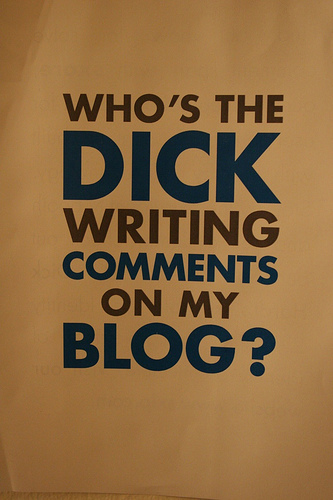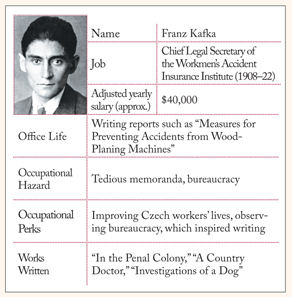My living room couch is nice. My bed is comfy and relaxing. But the outside world is a too-neglected source of reading coves. A book can be influenced by its context. In the same way a vacation is as much about the promise of temporary joblessness as it is about the destination environment, reading is as much about the book as it is about the break from the normal domestic setting. With that, I bring you the first installment of a hopefully long-lived series: Kansas City Reading Coves. When I can, I like my reading retreats like my Mormons: welcoming and concernedly friendly. Today's cove: Javanaut - 1615 W 39th St, Kansas City, Missouri 64111 Right away, I have to say that I liked this place better when it was The Crave Cafe. The main difference between the former and the current establishment is the comparative sterility of the latter.…
Posts By Caleb J. Ross
Writing fiction is not a rich man’s game. Though some authors are able to attain and sustain luxury by writing novels, that club is quite exclusive. In fact, most of the authors whose books you see even in national bookstore chains (Barnes & Noble, Borders, etc.) have day jobs. Fiction is usually a supplement their better life decisions. Did you know Jim Lehrer has published 17 novels? No, you didn't. John Lithgow, Alan Arkin, Jimmy Buffet, Wes Craven, and so many others also wrote fiction. But they were smart enough to go to celebrity school instead of author college. But, fiction writing is not without its fringe benefits. Here's a few I've discovered: I change into my pajamas at around 5:00pm, not out of laziness, but as a mimetic character channeling method. It’s entirely coincidental that I write about lazy characters. Nobody expects me to be socially comfortable. Conversely, I…
Episode #004 of The Velvet Podcastjust went live a few hours ago. Me, Rob Parker, and Mark Jaskowski talk about: Most writers, whether hobbyists or professionals, would defend that writing is a compulsion. Yet despite this apparent need, writers find a lot a lot of ways to procrastinate (creating this podcast being one). In this episode, three Velvet members discuss why writing is so necessary, what keeps us from writing when we know we should, what keeps us writing once we start, and how helpful are writing exercises (Writers Digest would say “very;” their bottom line depends on it).(WARNING: We like tangents. Be weary) Please, give it a listen. Subscribe via Feedburner, Podcast Alley, iTunes.
 I’ve been accused of being a bit of a literary snob. Mostly by best-seller groupies who smell like trade paperbacks and poverty. Why don’t you go save a few dimes at a used blog store, and leave the shiny new posts to those of us with taste!
/UNDESERVED SENSE OF ENTITLEMENT
My justification for being a literary snob (literob?) always has been that if a book is best-selling and intellectually easily accessible, then it likely isn’t confronting dangerous (i.e., important) topics. I want to believe that fiction should be more than entertainment. For the most part, I still agree with this logic. But a few months ago, at the AWP Conference in Denver, CO, I came to a bit of a realization, with some help from author Tod Goldberg.
I realized that despite any drive to challenge the established format or structure of fiction, it is the story itself that keeps readers reading. I wanted to believe that a unique concept, or beautiful language, or inventive formatting alone could carry a book-length work. But no, it cannot. A book told from the perspective of a cancerous cell? Conceptually unique, but no. A book intimately describing that cancerous cell? Beautiful language, but no. A book giving dialog to every cancerous cell in a body, matching the text color to the cell color? Inventive formatting, but no. A book that imbues a cancerous cell with character traits similar to a human while putting that cell in a morally conflicted position? Sure.
My fault rested not entirely with the assumed intellectual ease of commercial (vs. literary) writing, but also with the ill-conception that plot-driven genre fiction is somehow weaker and easier to write than a high-Art piece of literary fiction. This opinion was birthed in college, where I first began to read and write. Had I read as a child, I may have understood the basal importance of plot long ago. But my literobbery was rooted in college, too late to let aesthetics matter. I was a head case (vs body case) from the beginning.
Now, five years post-graduation, a degree in-hand, and without a writing career that nullifies a day job, I’ve started to wonder about the role a university education plays in a writer’s life. Note: I wouldn’t trade my university experience for anything; I love being a literob. But I do wish that a stronger focus would have been placed on the writer’s career, and less on the writer’s life.
[pullshow]This is where Tod Goldberg comes in. During a panel titled Crime, Horror, Sci‐Fi, and Fantasy… Seriously, Goldberg, almost in passing, mentioned that [pullthis]he teaches his writing classes as though they were part of a trade program, meaning that he trains his students for actual jobs.[/pullthis] This goes against the traditional goal of a university writing program, which places almost no focus on job prospects, instead opting for a focus on intellectual ends (proselytizing [convincing students that their money is well-spent], pedagogy [teaching students to be teachers who in turn put their students in similar job-less positions], and how best to embed asides within parenthesis [I like to use brackets]).
If someone loves to weld, they go to a welding school to learn to be a professional welder. If someone loves to write, shouldn’t they go to a writing school to learn to be a professional writer? The key word being “professional,” meaning, to get paid doing so.
I’ve been accused of being a bit of a literary snob. Mostly by best-seller groupies who smell like trade paperbacks and poverty. Why don’t you go save a few dimes at a used blog store, and leave the shiny new posts to those of us with taste!
/UNDESERVED SENSE OF ENTITLEMENT
My justification for being a literary snob (literob?) always has been that if a book is best-selling and intellectually easily accessible, then it likely isn’t confronting dangerous (i.e., important) topics. I want to believe that fiction should be more than entertainment. For the most part, I still agree with this logic. But a few months ago, at the AWP Conference in Denver, CO, I came to a bit of a realization, with some help from author Tod Goldberg.
I realized that despite any drive to challenge the established format or structure of fiction, it is the story itself that keeps readers reading. I wanted to believe that a unique concept, or beautiful language, or inventive formatting alone could carry a book-length work. But no, it cannot. A book told from the perspective of a cancerous cell? Conceptually unique, but no. A book intimately describing that cancerous cell? Beautiful language, but no. A book giving dialog to every cancerous cell in a body, matching the text color to the cell color? Inventive formatting, but no. A book that imbues a cancerous cell with character traits similar to a human while putting that cell in a morally conflicted position? Sure.
My fault rested not entirely with the assumed intellectual ease of commercial (vs. literary) writing, but also with the ill-conception that plot-driven genre fiction is somehow weaker and easier to write than a high-Art piece of literary fiction. This opinion was birthed in college, where I first began to read and write. Had I read as a child, I may have understood the basal importance of plot long ago. But my literobbery was rooted in college, too late to let aesthetics matter. I was a head case (vs body case) from the beginning.
Now, five years post-graduation, a degree in-hand, and without a writing career that nullifies a day job, I’ve started to wonder about the role a university education plays in a writer’s life. Note: I wouldn’t trade my university experience for anything; I love being a literob. But I do wish that a stronger focus would have been placed on the writer’s career, and less on the writer’s life.
[pullshow]This is where Tod Goldberg comes in. During a panel titled Crime, Horror, Sci‐Fi, and Fantasy… Seriously, Goldberg, almost in passing, mentioned that [pullthis]he teaches his writing classes as though they were part of a trade program, meaning that he trains his students for actual jobs.[/pullthis] This goes against the traditional goal of a university writing program, which places almost no focus on job prospects, instead opting for a focus on intellectual ends (proselytizing [convincing students that their money is well-spent], pedagogy [teaching students to be teachers who in turn put their students in similar job-less positions], and how best to embed asides within parenthesis [I like to use brackets]).
If someone loves to weld, they go to a welding school to learn to be a professional welder. If someone loves to write, shouldn’t they go to a writing school to learn to be a professional writer? The key word being “professional,” meaning, to get paid doing so.
 Things need to change. I need to blog more. I need to have interesting things to say. Yes, that is the correct order for those last two items. Blogs, generally, are dumb. So many of them tend to be self-infatuated messes. The argument that this egotism is their exact purpose stands, true. So perhaps my contempt is like me at an orgy: so many people doing it must mean it’s fun, but every time I try one, I leave with a bad taste in my mouth. Gross.
I read plenty of industry blogs, which I see as more an evolution of the commercial print world (magazines, trades, etc.) than as an evolution of the private world (diaries, journals, bathroom stalls). So, maybe I am meant simply to avoid the diaries and try to make this blog more about the industry.
Problem: I don’t know much about “the industry.” I don’t even know what industry that would be. Publishing? Authoring? Is drinking an industry?
[pullshow]I want to be useful. I want to provide valuable content to my 2.5 readers (I call them nuclear readers; when they comment on my posts, I call them nuclear reactors…get it…anyone…). A Platform is becoming an increasingly important part of a writer’s business arsenal. Think of a platform as a retarded term for group of buyers. Essentially, publishers want writers to have a market before a book is even contracted. Strange, I know. If I already had an audience, I would print and sell the book myself. (Already, I’ve stream-of-conscious-ing this thing; next step: decorate with Lisa Frank stickers and catch my older sister reading it).
[pullthis]So my question is, what is useful? What is my unique knowledge?[/pullthis] Or if not that, what is the unique perspective I can offer? Here’s a list of possibilities:
Things need to change. I need to blog more. I need to have interesting things to say. Yes, that is the correct order for those last two items. Blogs, generally, are dumb. So many of them tend to be self-infatuated messes. The argument that this egotism is their exact purpose stands, true. So perhaps my contempt is like me at an orgy: so many people doing it must mean it’s fun, but every time I try one, I leave with a bad taste in my mouth. Gross.
I read plenty of industry blogs, which I see as more an evolution of the commercial print world (magazines, trades, etc.) than as an evolution of the private world (diaries, journals, bathroom stalls). So, maybe I am meant simply to avoid the diaries and try to make this blog more about the industry.
Problem: I don’t know much about “the industry.” I don’t even know what industry that would be. Publishing? Authoring? Is drinking an industry?
[pullshow]I want to be useful. I want to provide valuable content to my 2.5 readers (I call them nuclear readers; when they comment on my posts, I call them nuclear reactors…get it…anyone…). A Platform is becoming an increasingly important part of a writer’s business arsenal. Think of a platform as a retarded term for group of buyers. Essentially, publishers want writers to have a market before a book is even contracted. Strange, I know. If I already had an audience, I would print and sell the book myself. (Already, I’ve stream-of-conscious-ing this thing; next step: decorate with Lisa Frank stickers and catch my older sister reading it).
[pullthis]So my question is, what is useful? What is my unique knowledge?[/pullthis] Or if not that, what is the unique perspective I can offer? Here’s a list of possibilities:
- I edit the OWC site, so I know some about small presses and “outsider” authors
- I write fiction, so I know about lying
- I have a lot of concepts for niche products, so I could give away million-dollar product ideas for free
- I’m really good at eating pop-tarts. The trick is to turn them upside-down before eating, so that the icing touches your taste buds directly. Shit, there goes that blog post.
- I know a little about podcasting
- I once helped nurse a bird back to health after nearly hitting it with a lawn mower (yes, “nearly.” The bird was emotionally traumatized)
- I marketed my debut story collection, Charactered Pieces, with a zero-dollar budget, so I know how to spend a lot of time not writing constructive fiction. Related: I blog
More about Charactered Pieces, here. More about Stranger Will, here.
 [display_podcast]
Most writers, whether hobbyists or professionals, would defend that writing is a compulsion. Yet despite this apparent need, writers find a lot a lot of ways to procrastinate (creating this podcast being one). In this episode, three Velvet members discuss why writing is so necessary, what keeps us from writing when we know we should, what keeps us writing once we start, and how helpful are writing exercises (Writers Digest would say “very;” their bottom line depends on it).(WARNING: We like tangents. Be weary)
[display_podcast]
Most writers, whether hobbyists or professionals, would defend that writing is a compulsion. Yet despite this apparent need, writers find a lot a lot of ways to procrastinate (creating this podcast being one). In this episode, three Velvet members discuss why writing is so necessary, what keeps us from writing when we know we should, what keeps us writing once we start, and how helpful are writing exercises (Writers Digest would say “very;” their bottom line depends on it).(WARNING: We like tangents. Be weary)



